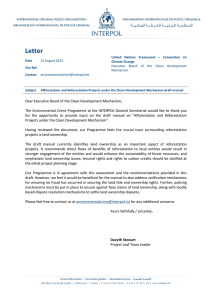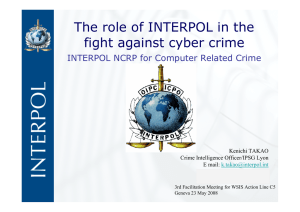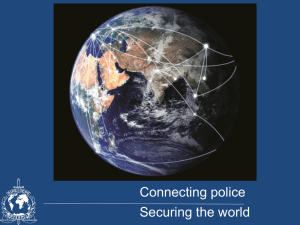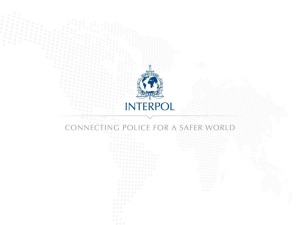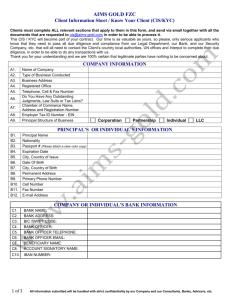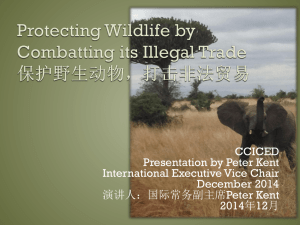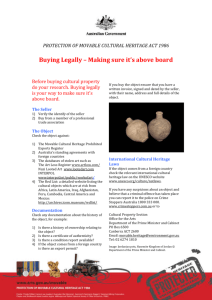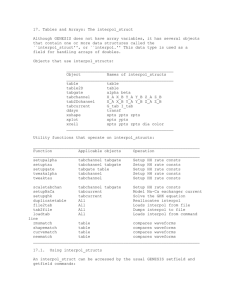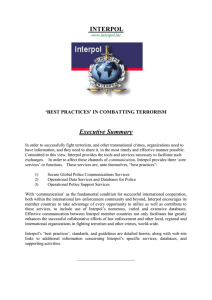INTERPOL’s response to the illegal transboundary movements of WEEE in Europe
advertisement
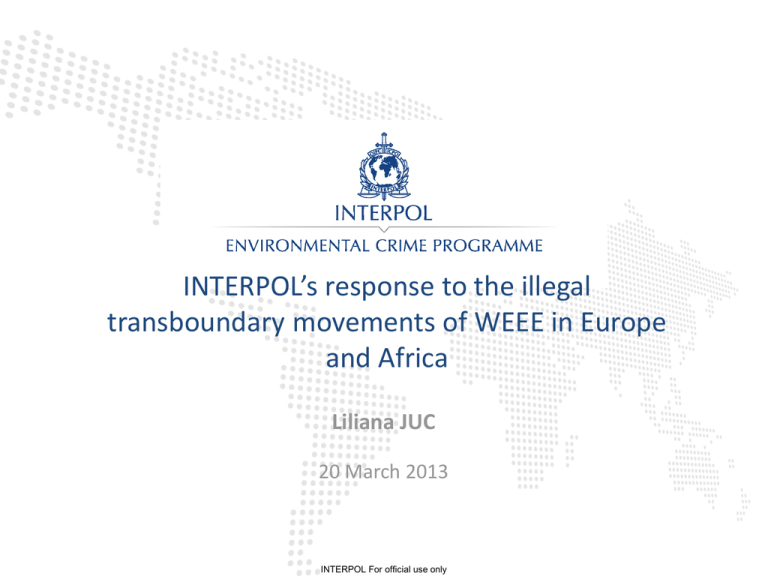
INTERPOL’s response to the illegal transboundary movements of WEEE in Europe and Africa Liliana JUC 20 March 2013 INTERPOL For official use only INTERPOL – a global organization • Created in 1923, INTERPOL is the world’s largest international police organization, with 190 member countries, • INTERPOL aims to facilitate international police co-operation • General Secretariat in Lyon, France, seven Regional Bureaus, one Liaison Office, and Special Representatives of INTERPOL to the United Nations and to the European Union in Brussels. • Four official languages: Arabic, English, French and Spanish • A National Central Bureau (NCB) in each member country INTERPOL For official use only History of INTERPOL Involvement in Pollution Crime • 2006: INTERPOL Pollution Crime Working Group initiates global research to identify the highest risks for pollution crime and the involvement of organized crime groups ; Results: 35 case studies were collated proving examples on illegal traffic of HW, ODS. • 2009: Establishment of the INTERPOL Global E-Waste Crime Group, focuses specifically on waste electrical and electronic equipment; Results: revealing of informal networks or criminals that make profit from illegal traffic of e-wastes to developing countries. INTERPOL For official use only Intelligence Gathering/Sharing: To assess the criminal activity behind illicit smuggling of hazardous waste through coordinated international efforts, using INTERPOL’s secure communications network: • I - 24/7 • Ecomessage INTERPOL For official use only Global E-waste Crime Group 2009 INTERPOL’s Response Project EDEN 2012 Project LITE 2012 Project e-Learning INTERPOL For official use only Operation ENIGMA Project EDEN An initiative to combat illicit trans-boundary trafficking of hazardous waste INTERPOL For official use only Operation ENIGMA • From August to December 2012 • Involved Europe and Africa: Belgium, United Kingdom, Netherlands and Germany (producing countries) Ghana, Nigeria, and Guinea (destination countries) ©Belgium Federal Environmental Inspectorate • 100 Tonnes of e-waste seized by Belgian Authorities during the Operation Returned to the Netherlands for analysis RESULTS: Law enforcement officers still face difficulties in distinguishing between EEE and WEEE, the necessity to establish a guide on the regulation of each participant country; INTERPOL For official use only l.juc@interpol.int INTERPOL For official use only
